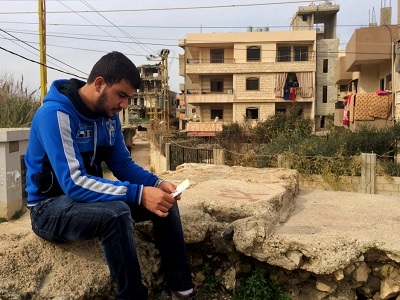
By Venetia Rainey – Beirut
Of all the countries Palestinians settled in when they fled or were forced from what is now Israel nearly 70 years ago, Lebanon remains the most hostile to providing basic rights to the decades-old community and its thousands of descendants. As a result, they are systematically marginalized and disenfranchised.
We invite you to spend a week in the country’s refugee camps with three young Palestinians and discover their daily reality – through their own eyes.
Lebanon’s Palestinians are unique. In Jordan, the majority of some two million Palestinian refugees were allowed the rare pleasure of full citizenship, while in Syria – before the war – a population of just over 400,000 enjoyed the same rights as their Syrian counterparts, bar citizenship.
In Lebanon, however, an estimated nearly 300,000 people are forced to live on the periphery of society, deprived of citizenship, prohibited from dozens of high-level professions, barred from owning property, forbidden from taking advantage of state schools and hospitals, and excluded from social security benefits – even if they pay taxes.
Lebanon fears that assimilating the refugees – nearly all are Sunni Muslims – could upset its delicate sectarian balance, and they remain stigmatized for the role Palestinians played in sparking Lebanon’s 15-year civil war back in the 1970s.
Today, around two-thirds live in 12 official camps, where various Palestinian factions ostensibly run security and a single UN agency – UNRWA – attempts to provide all other basic services. Set up in 1949 specifically to deal with the Palestinian refugee crisis, UNRWA is chronically underfunded and overstretched, and has recently come under intense pressure to address its budget shortfall.
This, combined with an influx of Syrian refugees and growing tensions between armed groups in some of the camps influenced by extremist elements, has made life increasingly difficult for Palestinians in Lebanon. Three-quarters of camp inhabitants live below the poverty line, scraping by on less than $6 a day – and that was before the Syrian crisis.
So what does all this mean for young people growing up in this environment? How does it feel to be a 20-year-old young man from Nahr al-Bared looking for a job? What’s it like to be a 19-year-old woman in Ain al-Hilweh who hears gun battles every day? How does a 25-year-old from Bourj al-Barajneh cope with the impossibility of the working restrictions?
To find out, come and meet Mohammad, Sara and Ali. Immerse yourself in their world though WhatsApp chats, videos, photos and handwritten notes. See for yourself what life is really like for young Palestinian refugees in Lebanon today.
– Read more: What’s It Like to Be a Young Palestinian Refugee in Lebanon Today? – IRIN





